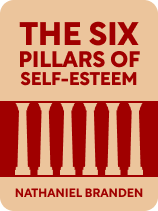

This article is an excerpt from the Shortform book guide to "The Six Pillars of Self-Esteem" by Nathaniel Branden. Shortform has the world's best summaries and analyses of books you should be reading.
Like this article? Sign up for a free trial here .
Do you feel you are living from a place of awareness or denial? What does it mean to live in awareness?
When you live in awareness, you look for information about the external and internal realities that affect your life, accept them, and act accordingly. For example, you take control of your finances by checking your bank account and adjusting your budget as needed. If you don’t look for information about these realities, you’re not living in awareness—you’re choosing ignorance and denying reality on some level.
Keep reading to learn what living in awareness is and why it’s important.
What Is Living in Awareness?
According to psychotherapist Nathaniel Branden, living in awareness involves situational awareness: You’re aware of everything that’s important in a particular situation and act accordingly. As such, you simultaneously choose not to pay attention to unimportant stimuli, which allows you to live in the moment. For example, if you’re focused on reading this article, ignoring the room’s temperature is a sign you’re living in awareness—unless your teeth are chattering.
(Shortform note: Sometimes, things seem important but are just pressing. For example, if you’re working on an important presentation, a phone call from your boss about the presentation is both important and pressing, but a phone call from her about the holiday party may just be pressing. To determine whether something is important or merely pressing, plot out the difference with the graph recommended by productivity expert Stephen R. Covey in First Things First.)
Branden names several more specific habits you implement when you live in awareness.
1. You use your mind. You choose to think for yourself and to look for knowledge. (Shortform note: One way to do this is to learn about the unconscious biases that affect our decisions, which Kahneman describes in Thinking, Fast and Slow. Understanding these biases is an act of awareness that can help you make better decisions.)
2. You’re always learning because you know it’s necessary to maintain awareness of reality in an ever-changing world. You’re curious about the world around you and open to new ideas. You seek information that could alter your life and respond appropriately if you encounter it. You prioritize the truth instead of your ego, so you readily admit when you’re wrong. (Shortform note: In Ego Is The Enemy, Ryan Holiday warns that your ego can convince you that you know everything—but even someone who’s mastered a skill can find new ways to improve. He recommends becoming a mentor to someone more junior than you: The experience of teaching what you know improves your understanding of it and encourages you to grow.)
3. You know that what you believe isn’t necessarily true. For example, if your friend doesn’t text you, you may believe she doesn’t care about you. But just because you believe this doesn’t make it true—maybe she had an emergency. (Shortform note: If you’re having trouble discerning the difference, try the litmus test presented by researchers Douglas Stone, Bruce Patton, and Sheila Heen in Difficult Conversations: A fact is measurable and verifiable. Everything else is subjective.)
4. You try to understand yourself. You pay attention to your feelings, emotions, and behaviors, and you act on what they reveal. (Shortform note: If you don’t know how you feel about something, try the head/heart technique: Notice your thoughts, then direct your attention to your heart area. Do any feelings arise? These can be pure emotion or physical cues that indicate emotion—like a fluttering in your heart.)
5. You try to face unpleasant realities when necessary. You may occasionally succumb to the temptation of avoiding these painful realities—but as long as you sincerely attempt to face them, you’re living in awareness. (Shortform note: If you suspect you’re avoiding something, ask yourself questions like, “What dark secrets about myself have I never told anyone?”)
6. You persist when you inevitably encounter difficulties, instead of giving up or making a half-hearted effort. That said, if you stop pursuing a goal because you lack the time or energy required to resolve the challenges involved, you’re still living in awareness. (Shortform note: Persevering when you encounter difficulties is an element of grit, which psychologist Angela Duckworth defines as a combination of perseverance and passion. In Grit, she contends that this perseverance doubles your success—first because perseverance increases your talent, and then because it increases the application of that talent.)
7. You practice deep breathing and relaxation techniques in order to fully embrace and feel your emotions. Branden explains that when you block your emotions, you breathe more shallowly and tighten your muscles. The longer you live without awareness of your emotions, the more ingrained these physical habits become—and eventually, you become incapable of feeling as much as you used to. Techniques like deep breathing reverse this pattern: You become physically able to feel more, so you’re able to be more aware of your emotions.
(Shortform note: Physically reconnecting with your body may be especially important for trauma survivors, who are prone to low self-esteem. In The Body Keeps the Score, researcher Bessel van der Kolk contends that trauma survivors suffer major disconnection from their bodies, and it’s only by becoming aware of and responding to their physicality that they can work through their trauma.)
Why Living in Awareness Matters
You’ve now learned what living in awareness is—but why does it matter?
Branden argues that living in awareness is the foundation of self-esteem. Every day, you make decisions that either do or don’t demonstrate a commitment to conscious living: You live in awareness by not buying a drink you can’t afford, then do the opposite by avoiding a necessary but tough conversation. Although you don’t consciously remember most of these decisions because you make so many of them, each decision either nurtures or chips away at your self-esteem—and, collectively, they determine your self-esteem.
Moreover, Branden contends that living without awareness can lead to addiction: You turn to addictive substances to reduce your awareness of your pain. But the tools of your addiction only blunt your pain temporarily. Afterward, your pain returns more powerfully than before—so you need even more of your substance to dull your awareness of it. Branden adds that addiction is only possible if you live without awareness: You only knowingly do something bad for you if you ignore the reality that it’s bad for you.

———End of Preview———
Like what you just read? Read the rest of the world's best book summary and analysis of Nathaniel Branden's "The Six Pillars of Self-Esteem" at Shortform .
Here's what you'll find in our full The Six Pillars of Self-Esteem summary :
- Exactly how to behave to improve your self-esteem
- Why you need to take responsibility for your life and actions
- Why so many self-esteem techniques don't work






